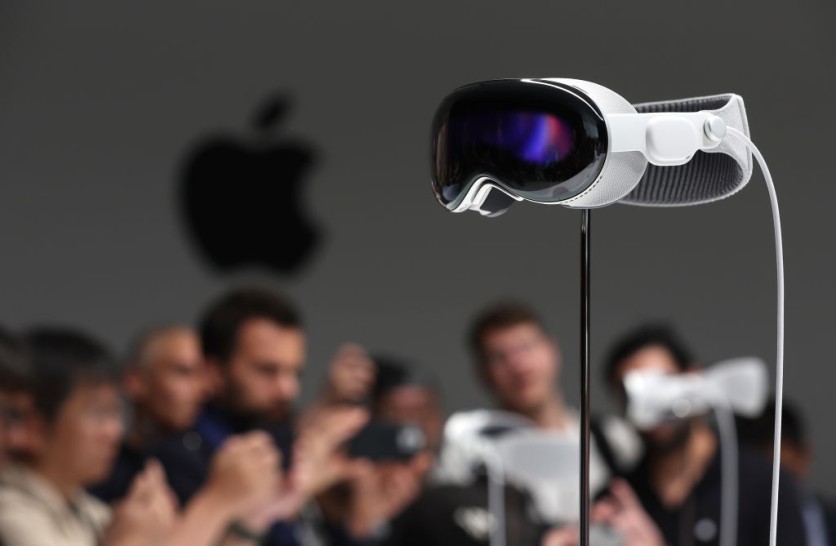The album "Super Connected" by British singer-songwriter Tim Arnold has faced a ban on Apple Music due to a parody ad featured on the album.
The spoof ad humorously promotes an Apple headset called iHead, created four years before Apple's actual release of a Vision Pro.
Apple Issues Ban on Fake Vision Pro Ad

Despite other albums with joke ads being allowed on the platform, Apple claims to have an issue with the concept of a fake ad rather than the specific target of the satire. This ban has prompted an open letter signed by notable entertainment figures, urging Apple to reverse its decision.
Tim Arnold's album, "Super Connected," successfully launched on Spotify but encountered a setback on Apple Music, 9to5Mac reports. The track in question contains a joke advertisement for the fictional Apple headset, iHead.
The track is a short sketch, featuring beloved British actor Stephen Fry humorously describing the benefits of the "iHead," a fictional immersive headset at the center of the concept album's narrative story. Although created in 2019, the "iHead" has similarities to Apple's new Vision Pro.
The track "A Commercial Break" is clearly tongue-in-cheek, serving as a parody commercial for a fake product. Although it seems to have touched a digital nerve with Apple.
The Cupertino titan has informed Arnold that the ban stems from the presence of a fake ad rather than the content targeting the Vision Pro headset.
Notably, other albums on Apple Music, such as Queens Of The Stone Age's "Songs For The Deaf," TD Cruze's "TDTV," and The Who's "The Who Sell Out," feature parody ads or fake radio segments without facing similar restrictions.
Apple Hates This Kind of Ads
Apple's response to the ban suggests that the tech giant lacks a sense of humor, reinforcing the very point Tim Arnold seeks to make with his album. The intention behind the parody ad is to humorously highlight how digital services embed themselves into music and our lives by incorporating advertisements.
Arnold's aggregators have informed him that the iPhone maker would accept the album if he removes the track, but he believes the banned track is essential to the album's concept and message.
An open letter has been issued, calling on Apple to reconsider the ban. Several notable figures in the entertainment industry, including Kaiser Chiefs singer Ricky Wilson and Spandau Ballet songwriter Gary Kemp, have added their names to the letter. This collective action aims to demonstrate support for artistic freedom and the inclusion of parody content within music.
If you're intrigued by what this video contains, check the video below to see it for yourself.
Read also: Apple Vision Pro Caviar Edition Costs Almost $40,000: Is the 18K Gold Wrapped Headset Worth It?

![Apple Watch Series 10 [GPS 42mm]](https://d.techtimes.com/en/full/453899/apple-watch-series-10-gps-42mm.jpg?w=184&h=103&f=9fb3c2ea2db928c663d1d2eadbcb3e52)



